Podcast
Episode 10: Kim TallBear
For this episode of Crosscurrents, we were thrilled to have a chance to speak with Kim TallBear, the Canada Research Chair in Indigenous Peoples, Technoscience and Environment at the University of Alberta. Dr. TallBear was visiting Memorial University to deliver the latest installment of the Henrietta Harvey Distinguished Lecture Series. Dr. TallBear’s research encompasses broad themes, including her well known work on Indigenous Science and Technology Studies, most notably her book, Native American DNA: Tribal Belonging and the False Promise of Genetic Science. More recently, her research has moved toward Indigenous sexuality and relationships to nature. To explore these themes, TallBear has created ReLab, a laboratory that fuses academic research with creative work. The lab’s first initiative, Tipi Confessions, is a sexy storytelling show that has played in cities across Canada and internationally.
For this episode, we invited a guest host, Dr. Max Liboiron, Associate Vice President (Indigenous Research) at Memorial University. Dr. Liboiron has also previously been a guest of the show as her capacity as the driving force behind the Civic Laboratory for Environmental Action Research (CLEAR), a feminist and anti-colonial research lab focused on the natural sciences.
Welcome to the tenth episode of CrossCurrents, a podcast of Memorial University’s Nexus Centre for Humanities and Social Science Research.
To find out about future episodes of Crosscurrents, you can follow us on twitter @NexusCentre, search up the Nexus Centre Facebook page, or subscribe to the podcast on iTunes, Google Play, or YouTube.
The music used in the podcast was Ice and Chilli by _ghost (c) copyright 2009 Licensed under a Creative Commons Noncommercial Sampling Plus license. http://dig.ccmixter.org/files/_ghost/22043
The Nexus Centre is generously supported by the Faculty of HSS and the VPR office at Memorial University. For the next episode, we will continue with our series of dispatches from the Environmental Humanities in the Public Realm workshop.


